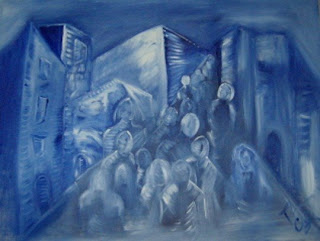
Every now and then I seek mindless distraction. So as I was shopping once, I picked up a copy of Cosmo, and flipped through it. This is when it occurred to me that these boldly colored pages perfectly capture the aftermath of feminism today.
High heels, make-up, and everything feminine used to be frowned upon by any woman who wanted to be taken seriously and to assert her independence of the male gaze. Today, however, women feel more comfortable to be their own regardless of what mould men or feminists want to fit them in. A woman can put on her pink ruffled skirt and platform shoes, and head to work or school if she wants to and still be capable of asserting herself. As a matter of fact, the trend is spreading even among Muslim women who were told over and over again to shun fashion. A rise of websites entirely dedicated to Muslim fashion is a witness to this phenomenon.
This is not only true of women’s fashion. It’s also true of the roles they are choosing to play. I feel that women today are much more comfortable dedicating themselves entirely to their households, if that’s where they truly find themselves, without feeling that pang of guilt created earlier by frowning feminists. I am not judging whether this is beneficial to the productivity of a society or not. I am merely noting that women have more choices today.
So does this mean that everything our mothers and grandmothers have worked for has gone in vain? No, not at all. If anything, this means that women are more comfortable in their own skins and are freer than ever. Today, thanks to all the accumulated efforts, we can choose whether we want to be housewives or astronauts. Or even both! What matters is that we be capable of giving our best at any field of life we choose. So in the end it’s really not that surprising when you see that my shopping basket ended up with an odd combination of cook books and economic books.
High heels, make-up, and everything feminine used to be frowned upon by any woman who wanted to be taken seriously and to assert her independence of the male gaze. Today, however, women feel more comfortable to be their own regardless of what mould men or feminists want to fit them in. A woman can put on her pink ruffled skirt and platform shoes, and head to work or school if she wants to and still be capable of asserting herself. As a matter of fact, the trend is spreading even among Muslim women who were told over and over again to shun fashion. A rise of websites entirely dedicated to Muslim fashion is a witness to this phenomenon.
This is not only true of women’s fashion. It’s also true of the roles they are choosing to play. I feel that women today are much more comfortable dedicating themselves entirely to their households, if that’s where they truly find themselves, without feeling that pang of guilt created earlier by frowning feminists. I am not judging whether this is beneficial to the productivity of a society or not. I am merely noting that women have more choices today.
So does this mean that everything our mothers and grandmothers have worked for has gone in vain? No, not at all. If anything, this means that women are more comfortable in their own skins and are freer than ever. Today, thanks to all the accumulated efforts, we can choose whether we want to be housewives or astronauts. Or even both! What matters is that we be capable of giving our best at any field of life we choose. So in the end it’s really not that surprising when you see that my shopping basket ended up with an odd combination of cook books and economic books.
(Painting by Jasmine Maddock)
 “Voting is for fags
“Voting is for fags
